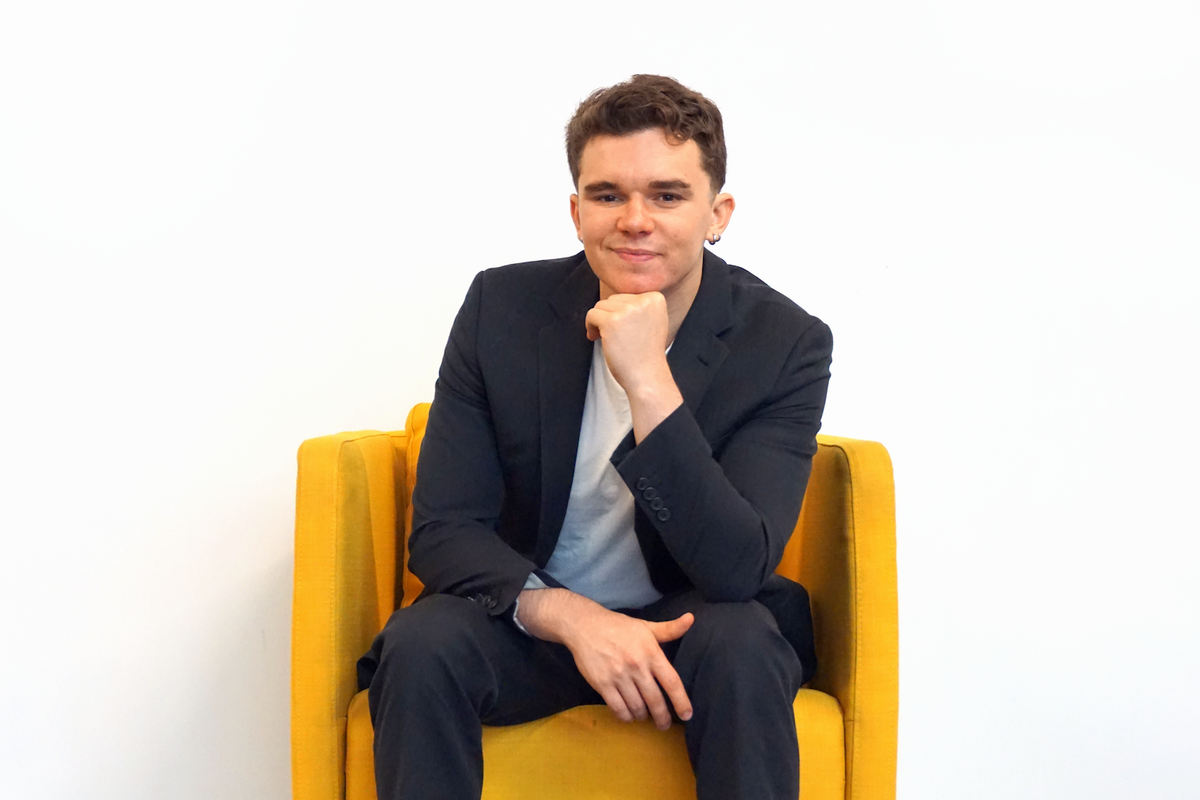Editor's note: Every week, I introduce you to a handful of Houston innovators to know recently making headlines with news of innovative technology, investment activity, and more. This week's batch includes an alternative materials founder, a Houston ecosystem builder, and the city's richest billionaire.
Zimri T. Hinshaw, founder and CEO of Rheom Materials

Zimri T. Hinshaw, founder and CEO of Rheom Materials, joins the Houston Innovators Podcast. Photo courtesy of Rheom
At first, Zimri T. Hinshaw just wanted to design a sustainable, vegan jacket inspired by bikers he saw in Tokyo. Now, he's running a bio-based materials company with two product lines and is ready to disrupt the fashion and automotive industries.
Hinshaw founded Rheom Materials (née Bucha Bio) in 2020, but a lot has changed since then. He moved the company from New York to Houston, built out a facility in Houston's East End Maker Hub, and rebranded to reflect the company's newest phase and extended product lines, deriving from dozens of different ingredients, including algae, seaweed, corn, other fruits and vegetables, and more.
"As a company, we pivoted our technology from growing kombucha sheets to grinding up bacteria nanocellulose from kombucha into our products and then we moved away from that entirely," Hinshaw says on the Houston Innovators Podcast. "Today, we're designing different materials that are more sustainable, and the inputs are varied." Read more.
Joey Sanchez, founder of Cup of Joey

Joey Sanchez's Cup of Joey has expanded across Houston to help make valuable connections to Houston entrepreneurs. Photo via LinkedIn
What is your purpose in life? One Houstonian is asking that question of his fellow entrepreneurs all across town.
Joey Sanchez founded Cup of Joey, a weekly meetup opportunity for innovators, business leaders, and the whole Houston community. The events are a place not only to share a cup of coffee but also their very own mission in life.
It all started in 2021 at the Houston Tech Rodeo, an initiative from Houston Exponential, where Sanchez worked as a director of corporate engagement. Texas had just opened social distancing in public events since the beginning of the COVID-19 pandemic, and Sanchez was finding ways to reconnect the Houston community.
‘We thought what better way than over a cup of coffee?” Since then, Sanchez has connected thousands of people based on purpose every Friday for the past three and a half years. Read more.
Tilman Fertitta, chairman, CEO, and owner of Landry's Inc.

Tilman Fertitta's net worth is estimated at over $10 billion. Photo by J. Thomas Ford
A dozen of Houston's illustrious billionaires have made the cut on the new Forbes 400, a list of the 400 richest people in the United States for 2024.
Houston hospitality king and Rockets owner Tilman Fertitta is the 12th richest Texan and the 99th richest person in the United States, according to the new Forbes 400 list, released October 1.
Forbes estimates Fertitta's net worth in 2024 as $10.1 billion, which has steadily climbed from his 2023 net worth of $8.1 billion. Fertitta, 67, purchased the Houston Rockets in October 2017 for $2.2 billion. The billionaire also owns Texas-based hospitality and entertainment corporation Landry's. In 2019, Fertitta embarked on a new venture as an author. Read more.
